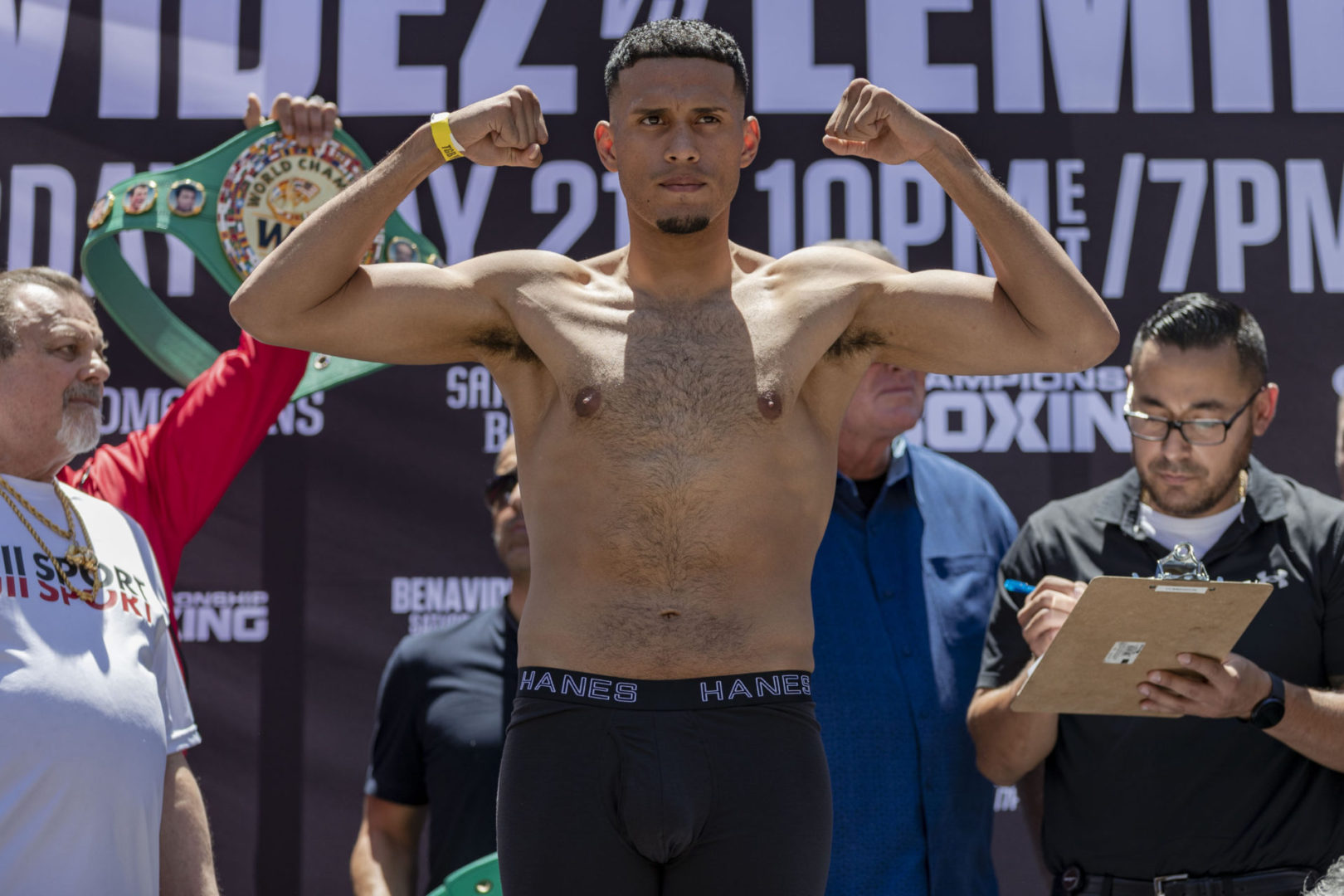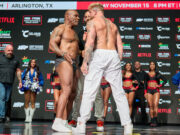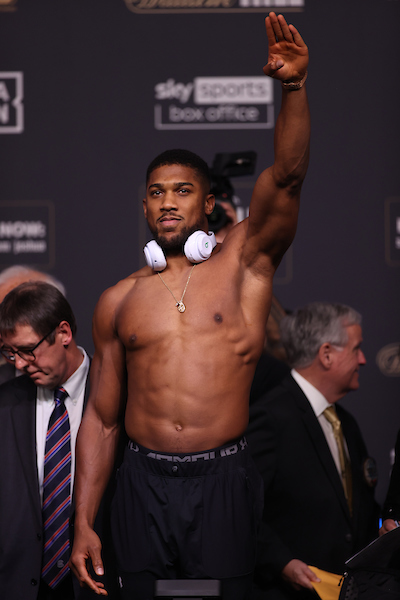If the day ever comes that you spar with a prizefighter, you’ll find yourself defenseless soon enough. Exhausted or confused, you’ll drop your hands or head in a silent plea for leniency. That’s when you’ll see it, no matter the other man’s decency: a click behind his eyes, almost audible, before he hits you to hurt you because you are defenseless in front of him and that is what a prizefighter does.
It is difficult to believe a professional fighter could rise to the titlist level and somehow forget this. Yet that is what Victor Ortiz did Saturday.
The result – his unconsciousness – was no surprise whatever. That is how Ortiz lost his WBC welterweight belt to Floyd Mayweather in MGM Grand at 2:59 of round 4. He stood before a world champion, hands lowered, and expected leniency. Mayweather checked this idiocy with a left hook. Ortiz turned toward the referee and showed incredulity. Then Mayweather took Ortiz’s consciousness with a right cross.
We can return to what oddities preceded this exchange in a bit. But for now, let’s put it here: Saturday night, one man acted like a fighter, and the other did not.
Mayweather did not look invincible in the first moments of his fight with Ortiz. Absent from the ring 16 months, Mayweather lunged with lead right hands that showed an erosion of foot and leg speed. Still, Mayweather knew that if his reflexes were superior to Ortiz’s, which they were, the rest would be details. He landed right-hand leads enough in the opening three minutes to know Ortiz’s only chance of beating him was if Mayweather made a mistake.
If Ortiz had a chance against Mayweather, it came early. As Shane Mosley clipped Mayweather in the opening five minutes of their 2010 fight, so Ortiz needed to clip Mayweather before the second round ended, Saturday. Ortiz did not. He winged wild right hooks from his southpaw stance, punches Mayweather saw easily enough to duck, rock his weight from back foot to front, and pivot away from. The opening bell of round 3 marked the start of hunting season for Mayweather who followed his trainer’s advice and walked Ortiz down.
Some of Ortiz’s subsequent retreat was conscious trap-setting. Most of it, though, was doing as his superior ordered. Ortiz had been hit hard in previous fights by slower and less-accurate punchers than Mayweather. He’d also shown a certain spaceshot-edness, a likelihood of putting his mind in a place far away. HBO may have made boxing fans forget this by hypnotically chanting “big, young, strong welterweight.” But Mayweather was not fooled.
If there were insights to be mined from HBO’s “24/7” infomercials, they were two: 1. Mayweather held Ortiz’s victimized-upbringing story in absolute contempt, and 2. Mayweather heard in Ortiz’s explanation for the Marcos Maidana debacle – that Ortiz didn’t remember any of it and therefore was not responsible for quitting – a set of spoken instructions for how to undo the 24-year old.
Ortiz wrestled Mayweather to the ropes toward the end of the fourth round, in the match’s most competitive moment. For an instant, it seemed possible Mayweather might fixate on how little his opponent’s last punch hurt at the expense of slipping the next. But Mayweather gathered himself and had Ortiz neutralized while the referee meandered over. Ortiz then left his feet in an attempt to spear Mayweather with his head. It was flagrant and vulgar. Even Mayweather didn’t have a proper defense for that, and despite yanking backwards still incurred a cut on his lower lip.
The sort of cut that stings like hell.
The referee began his penalty dance, and Ortiz – temporarily returned to his right mind – ran to hug Mayweather in apology. Mayweather rather graciously accepted the apology, even allowing Ortiz to kiss his cheek without clocking him. But Mayweather was rightfully furious. Then the referee sort of brought the fighters together and sort of indicated the fight was live again. Ortiz walked to Mayweather, hands down, and gave him another hug. Mayweather halfheartedly returned the embrace and did not yet retaliate for Ortiz’s head butt. Once the men were at fighting distance, though, Mayweather snapped a left hook at Ortiz, in an acceptable act of retribution.
At that very moment, a world champion – a Manny Pacquiao or Juan Manuel Marquez – would have acted like one. Marquez would have raised his hands, dropped his chin and circled away; Pacquiao would have leaped at his foe.
Ortiz dropped his hands, arranged a disbelieving look on his face and glanced 60 degrees from his opponent, seeking a score-evening penalty call from the referee whose own gaze was 60 degrees from the fight he was paid to supervise. Only Mayweather’s eyes stayed were they belonged. Then Mayweather put Ortiz’s lights out.
The ending brought a nervous tension Mayweather fights rarely do. For once, it became clear, Mayweather disliked his opponent more than his opponent disliked him. Mayweather saw in Ortiz an insincere usurper – a fraudulent stage prop created by HBO to evoke sympathy – and genuinely did not like the man. When Ortiz added to Mayweather’s estimation with a remarkable act of cheating, Mayweather served Ortiz the comeuppance he believed he deserved.
Only if you believe Mayweather – or believe even Mayweather believes Mayweather – when he says he belongs in a conversation about boxing’s greatest, do you ask a rhetorical question like: Was that any way for Mayweather to win a world title?
Mayweather – destined for jail, bankruptcy, or both in the next 20 years – speaks to fill the air with sounds till he provokes a reaction. Outside the ring, he is a whirligig of poor choices. Entertaining any of his claims says more about you than him.
But in the ring, Floyd Mayweather is a remarkable specimen. He is a fighter, and comported himself like one Saturday. His opponent did not. The better man won – as it should be.
Bart Barry can be reached via Twitter @bartbarry





















